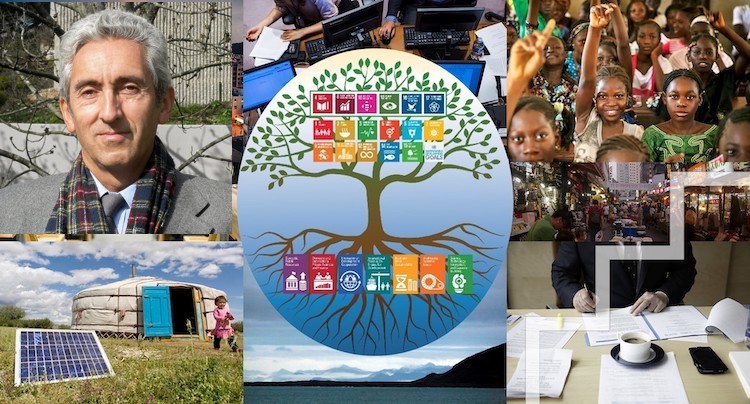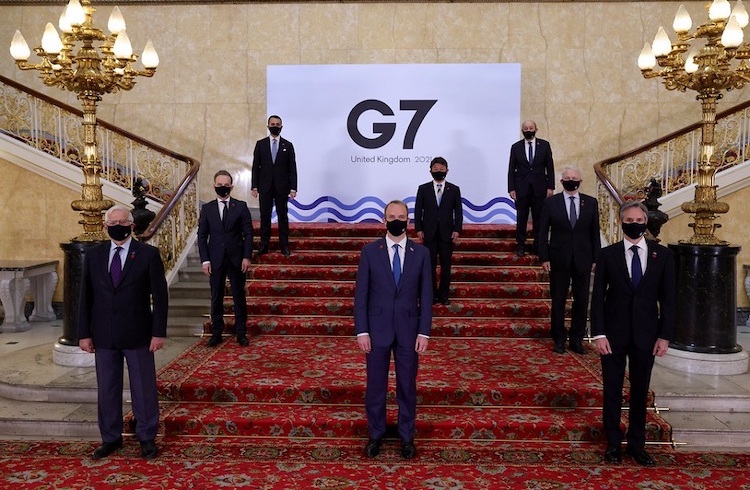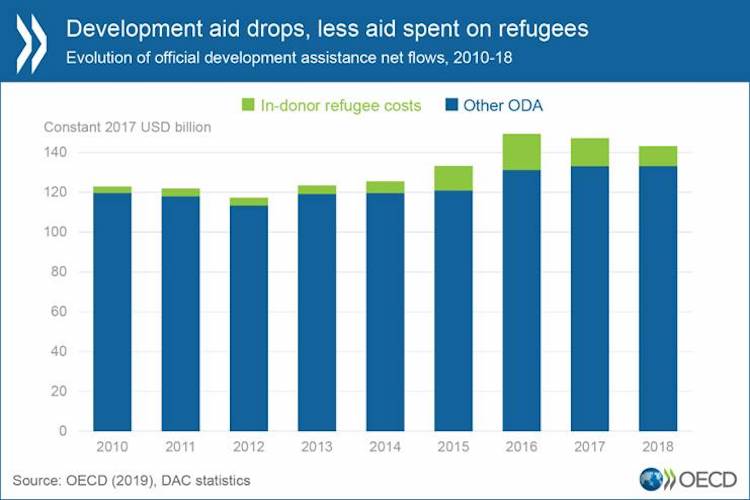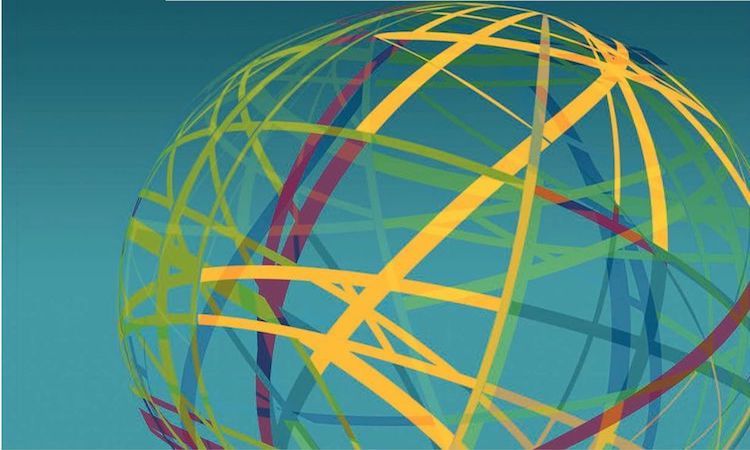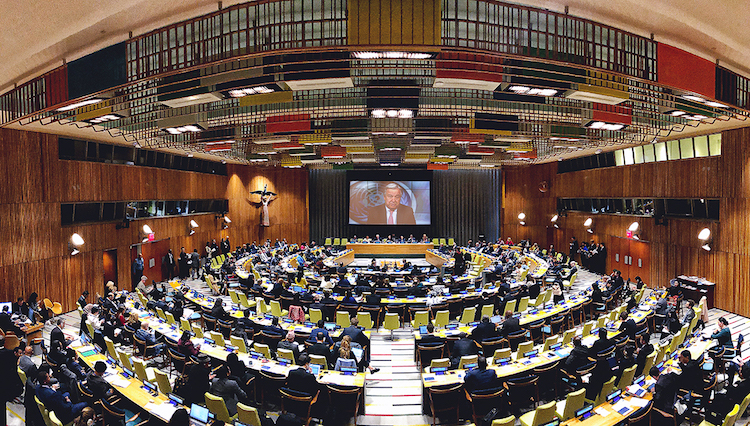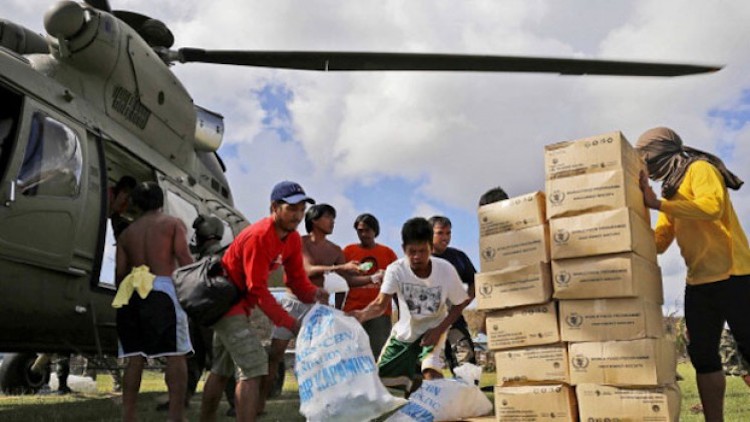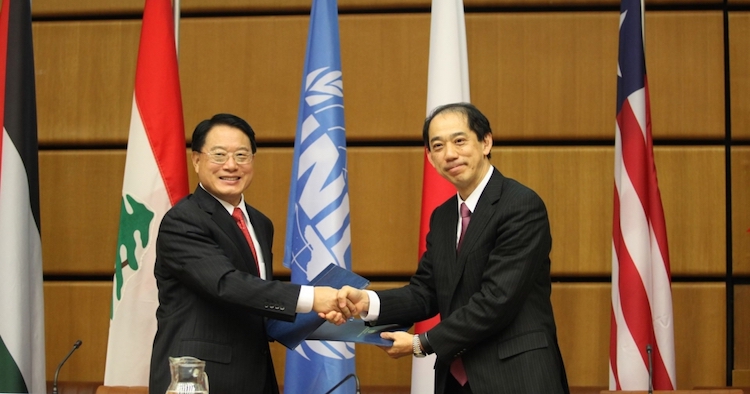Viewpoint by Carlos Correa The following is statement by Dr. Carlos Correa, Executive Director of the South Centre at the High-Level Dialogue on Financing for Development at the United Nations headquarters in New York on 26 September 2019. NEW YORK (IDN-INPS) – Four years after its adoption, Agenda 2030, “Transforming Our World,” the United Nations’ […]
As Global Leaders in Trade, G7 Are Committed to SDGs
By Edda Pleitez The writer, a student at the University of Texas, Austin and 2019 GFI Summer Intern, explains how some of the world’s most advanced economies and free societies implement the SDGs. This article first appeared in Global Financial Integrity. AUSTIN, Texas, USA (IDN-INPS) – The Sustainable Development Goals (SDGs) are a set of […]
Rich Nations Slash Development Aid to Neediest Countries
By Krishan Dutta PARIS (IDN) – “Donor countries are not living up to their 2015 pledge to ramp up development finance and this bodes badly for us being able to achieve the 2030 Sustainable Development Goals,” OECD Secretary-General Angel Gurría has cautioned. The warning of the head of the Organisation for Economic Co-operation and Development […]
Decline in External Finance to Developing Countries Endanger Global Goals
By Krishan Dutta PARIS (IDN) – “Donor countries have not followed through on their 2015 promise to expand development finance flows,” said OECD Development Co-operation Director Jorge Moreira da Silva, launching a landmark report at the Paris Peace Forum. He was commenting on an important finding of the report that external finance to poor countries […]
ACP Group Striving for Interrelated Sustainable Development
By Reinhard Jacobsen BRUSSELS (ACP-IDN) – The Sustainable Development Goals (SDGs) of the 2030 Agenda for Sustainable Development adopted by world leaders in September 2015 at an historic UN Summit opens a new era for a repositioned African, Caribbean and Pacific Group (ACP Group) to continue and deepen its decisive role in supporting all 79 […]
Finance for Development Should Focus on Poverty Eradication
By Sahar Nasr, on Behalf of the Group of 77 and China Following are extensive excerpts from the Statement on behalf of the Group of 77 and China by Ms. Sahar Nasr, Minister of Investment and International Cooperation of Egypt, at the general debate of the Forum on Financing for Development Follow-up on the follow-up […]
Donors Spend Less on Refugees, More on Poorest Countries
By Rita Joshi PARIS (IDN) – Foreign aid from 30 opulent nations, designated as “official donors”, totalled USD 146.6 billion in 2017, signifying a small decrease of 0.6% from the previous year in real terms because they spent less money on refugees hosted by them. But countries most in need of aid received more funds. […]
Japan Supports Human Security Projects in Eight Countries
By Reinhardt Jacobsen VIENNA (IDN) – Japan has announced that it will support eight UNIDO projects aimed at ensuring human security for the most vulnerable populations in Ethiopia, Iraq, Jordan, Lebanon, Liberia, Nigeria, Somalia and the Syrian Arab Republic. Ambassador Mitsuru Kitano, the Permanent Representative of Japan to the International Organizations in Vienna, affirmed on […]
Money is Not Wealth: Cryptos vs. Fiats!
By Hazel Henderson* JACKSONVILLE, Florida (IDN) – After a few drinks, most bankers, economists and investors will admit that money is not wealth. Like inches and centimetres, money is a metric, and it used for tracking real wealth: human ingenuity and technological productivity interacting with natural resources and biodiversity undergirding all human societies along with the […]
South-South Cooperation Holds the Key To Beating Global Development Challenges
By Jacques N. Couvas ANKARA (IDN) – “Solutions for the South by the South” was the recurring theme that resounded throughout the duration of the Global South-South Development Expo 2017 (GSSD Expo) from November 27 to 30, 2017 in Antalya, the largest Turkish city on the Mediterranean coast. This landmark event of the United Nations […]

